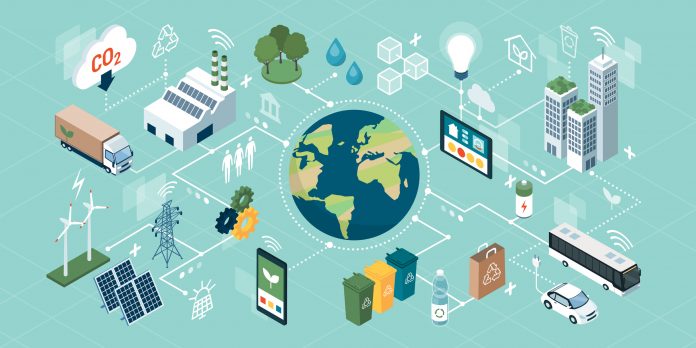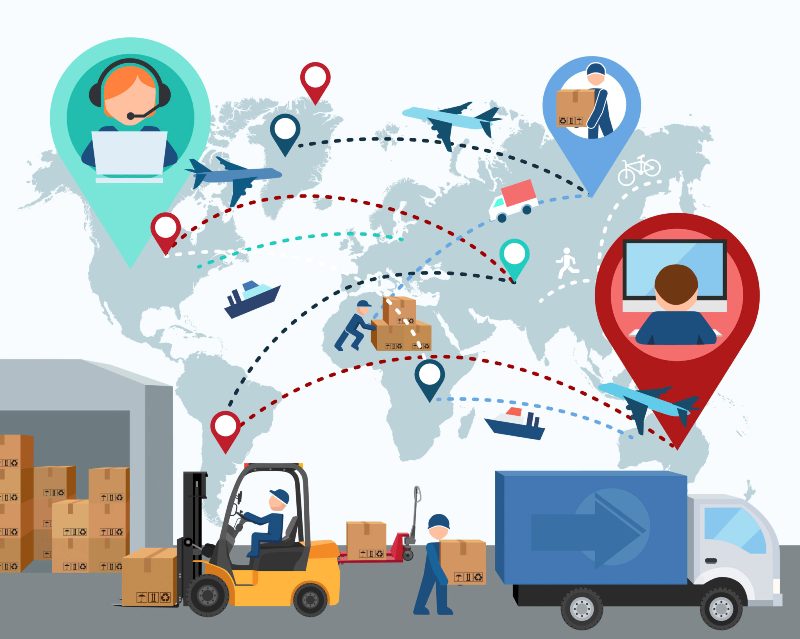
The cost of humanity’s modernized lifestyle has undoubtedly been a drastic change in Earth’s climate. According to erizon.com.au Global temperatures are changing like never before, as weather events have become extreme and unpredictable. The impact of climate change has created more challenges for the supply chain industry.
No matter what kind of market you are servicing, climate-related events have the ability to considerably impact your facilities, customers, power supply, transport, and supplies.
Hence, every organization needs to look for a solid solution to deal with the ever-increasing risk that climate change poses. By developing a solid plan and embracing new technologies may be an approach that can help you deal with uncertain climate consequences, which may save your company a lot of time and money. It is important to implement supply chain risk management strategies that can ensure your business will be safe well into the future, making you far more prepared to deal with climate adversity.
Learn About Logistics states, “Physical climate risks from extreme weather events and changing climate patterns could disrupt the availability of raw material and energy supply, supplier operations and communities along supply chains.”
Impact of Climate Change on Supply Chain:

Natural disasters are mostly unpredictable, and they often cause major issues for the management of supply chains. Recently, the Northern Midwest area of the US suffered due to flooding, and it led to huge infrastructure damage costing around $439 million in repairs. Additionally, fires, heavy snowfall, rainfall, and other natural events are also causing devastating issues around the globe.
Such sudden and drastic climate changes not only pose a threat to infrastructure; at the same time, they also damage natural resources and raw materials. In order to save your logistics business, it is best to start looking into how certain advanced technologies can support your business through any natural disasters that may impact your supply chain business. Experts reveal that Artificial Intelligence is the most trusted solution to deal with climate change.
BBVA states, “Another sector where AI can help improve efficiency while helping curb global warming is the transportation and logistics sector. Resorting to algorithms, transportation companies can predict more accurately the level of demand on a per-location basis, planning ahead for events, avoiding risks, and creating solutions.”
The advancements in the field of Artificial Intelligence are enough to majorly boost efficiencies in the logistics sector. AI can help to predict the changes in the environment so that network planning and demand adjustments can be made intuitively and seamlessly.
Benefits of AI for Logistics suffering from Climate Change:
AI offers advanced capabilities to manage and control logistics. Below we have listed a few points describing the effectiveness of AI and how it will support the supply chain by handling any climate-related issues:
Predict climate changes:

The latest AI-powered tools can help to predict extreme weather changes. The data collected from past climate conditions can be inputted into these AI systems, allowing it to learn from past data to reveal the future we need to prepare for.
AI is also capable of collecting valuable insights into climate modeling. After collecting such stats, logistics companies can better plan for shipping and deliveries. With this, losses due to heavy rain or snow can be easily avoided.
Learning about extreme weather:
The extreme weather conditions may cause traffic jams and delivery delays. Therefore relying on AI to assist the supply chain can help customers stay updated about unexpected delays due to climate events.
Automatic vehicle tracking:

Growing logistics companies around the world need to find some solid solutions for tracking vehicles, especially during poor weather conditions. AI offers reliable tracking options with the implementation of the latest software tools, making it easier for companies to stay in touch with their traveling fleets. Finding the best vehicle tracking tool, also known as telematics, is imperative for your fleet business to ensure you operate an efficient business. Thankfully, websites like iCompario (icompario.com), offer a comparison tool for finding the best telematics solutions for your fleet business. Additionally, the warehouse management teams can also stay prepared for inventory and shipping emergencies.
Control risks and unpredictable outcomes:
Another amazing benefit of AI in the logistics sector is its ability to provide sustainable solutions to control and manage risks. The advanced tools and software-based solutions make it possible to get early warnings about system failures. In this way, companies can avoid losses.
Maintain privacy and avoid errors:

AI is also capable of maintaining the security and privacy of data collected from the field. At the same time, AI reduces manual work, and hence errors can be avoided with ease. The advanced software platforms make it easier to handle economic consequences with digital controls.
Boost performance:
Without any doubt, by combining the potential of AI with your existing systems in the supply chain industry, it becomes easier to enhance overall returns. It can transform the way you manage your warehouse and can make processes easier for employees as well. You can naturally expect more returns and enhanced performance with these advanced tools.
Investing in AI for Supply Chain Management:

No matter what kind of supply chain business you are running, it is important to look for potential solutions to climate issues. On the one hand, logistics operators have to face the challenges associated with timely deliveries and rising demands; on the other, it is important to deal with sudden environmental changes.
Rowse states, “A smart warehouse combines various interconnected technologies to form an ecosystem whereby an entire business operation, from supply to delivery, is governed by AI. Goods are received at the warehouse, identified and sorted, processed, packaged, and pulled for shipment, all automatically and with minimal margin for error. Warehouse management will become more agile, with faster responses to logistical demands of material items and personnel, and more scalable in terms of finding new solutions for greater volume and flow of product.”
Experts advise making use of the latest technologies and software to handle the emergencies and routine supplies. The professionals in the field of AI and companies such as CartonCloud have developed feature-rich warehouse software that can serve logistics companies around the globe. Whether you are serving buyers in the specific region or are making deliveries overseas, advanced warehouse management software can make logistics issues easier to deal with.








